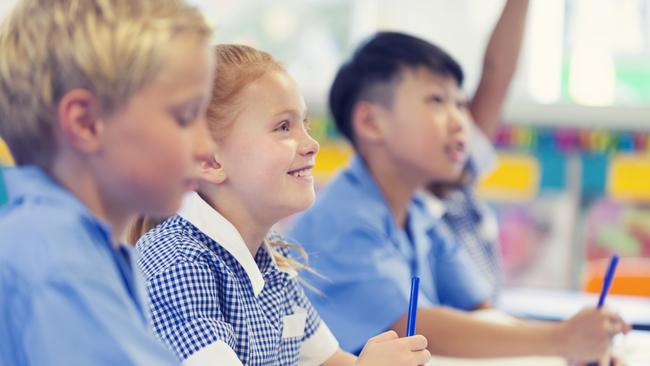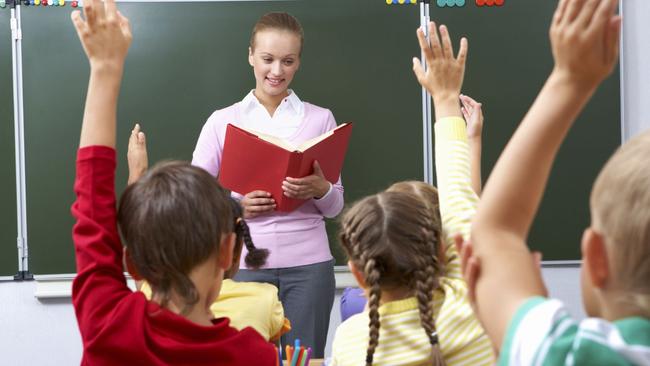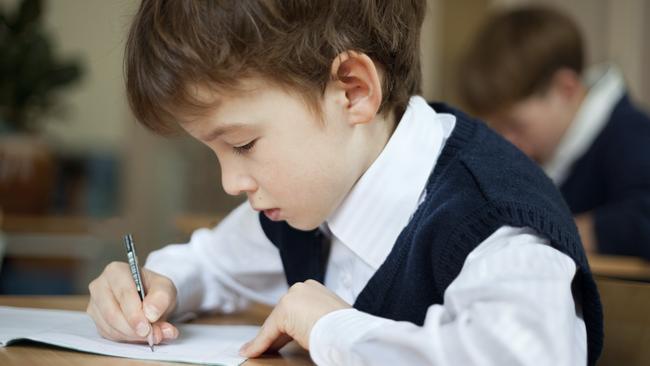David Penberthy: Why immigrant kids are triumphing at school
If there’s one thing that the latest round of NAPLAN results have shown, it’s that the great divide in our nation’s education is only getting bigger as time goes on, writes David Penberthy.

Opinion
Don't miss out on the headlines from Opinion. Followed categories will be added to My News.
I remember my school speech night from the increasingly distant year of 1985 when the awards were being doled out to those students who had achieved the highest marks in their subjects.
A bunch of kids I had never seen before came forward from the back of the old Cosgrove Hall at Marion High School to accept their medals. Their defining feature was that none of them were called Bruce, Shazza or Wazza, but had names such as Minh, Zhang and Tran.
I guess the reason I had never met these students is that they didn’t spend their lunch hours playing handball, kicking the footy, smoking on the oval, flirting with girls and listening to the latest Rodney Rude album.
They didn’t regard school as an irritating encroachment on the more important business of seeing bands, playing sport and trying to buy West Coast Cooler with a fake ID at the local drive-through.
They regarded school as nothing other than a place to learn. As a result, they learnt better than any of us.
Fast forward to 2020 and the latest NAPLAN results have confirmed something quite extraordinary.
Not only are the children of migrants performing better than Australian-born kids in the majority of subjects in almost every grade, they have an even better grasp of the English language than Australian-born kids for whom English is their native tongue.

When it comes to writing, spelling and grammar and punctuation, migrant students are performing better than their Aussie-born classmates across the board
The only area where they lag, and only very marginally, is reading. But in the writing section of the test, 94.9 per cent of Year 5 migrant students reached the minimum standard, compared to 93.2 per cent of children from English-speaking backgrounds.
The biggest difference for spelling was among Year 3 students where 96.3 per cent of migrant children reached the minimum standard, compared to 94.4 per cent of children whose family speak English.
It has often been said that migrant children do better because migrant families know what it’s like to live in countries that are devoid of opportunity.
If your parents have fled here on a boat from the killing fields of Cambodia, with half your family back home wiped out by the Khmer Rouge, you’ve got a pretty powerful demonstration of how bleak things can be, and how important it is to grab life with both hands.
It’s an effect that has been nicely described by the South Australian Governor Hieu Van Le, one of the so-called boat people who arrived from Vietnam in the 1970s, who says he came to Australia “with nothing but a suitcase filled with dreams”.

There are no such ravages in Australian suburbia, meaning parents are less likely to be as demanding of their children in a society where life meanders along without any major dramas.
The focus on high achievement in migrant families is one thing, but when it comes to literacy, I suspect there is something in the manner in which English is now taught which explains why migrant children are doing better than us Anglo types.
Over the past four decades there has been a lamentable shift away from the nuts-and-bolts teaching of the building blocks of literacy – that is, the basic rules of grammar and the humdrum of daily spelling tests.
There is now a bigger emphasis on creative writing and persuasive writing, and less on the old-fashioned rote learning and repetitive learning to stamp out errors of grammar and syntax. I can remember almost passing out through boredom in Years 2 and 3 writing verb conjugations in a canvas exercise book with our stern old English teacher up the front of the class, tersely admonishing us whenever we got a tense wrong. It was monotonous stuff but it stays with you.
The benefit migrant students have is that many of them study English as a language in its own right through ESL, English as a Second Language. It would probably benefit a lot of Aussie-born kids to enrol in ESL, too, as it is framed around teaching the foundations of the language to prepare students for its use.

I know that in my case I got a much better sense of how the English language works when I studied Spanish for three years at university, learning for the first time in detail about language structure, much of which could be applied equally to my own language.
The other added component to all this might involve the ubiquity of technology in Australian households where parents are both more affluent and more ambivalent about their children’s performance.
I have no doubt that the rise of spellcheck and the constant exposure to the literally-challenged world of social media is having a corrosive effect on the proper use of the language.
Hitting a command to check the spelling of a word doesn’t teach you how to spell, it teaches you how to be lazy. It has the added benefit of not really working anyway, as there is no spellcheck program that can reliably identify words that have been misspelt in their context, but remain correctly-spelled words in English.
When you couple this with the new syntax of social media, where punctuation is an irrelevance, proper nouns are never capitalised and spelling is a thing of the past, it’s no wonder the kids who are forced to work hard without being distracted by their mobile phones are doing better than everyone else.

